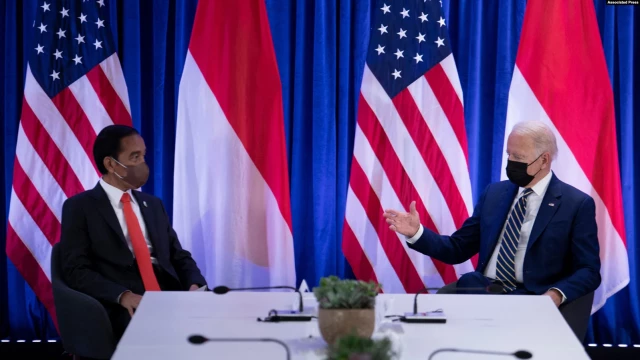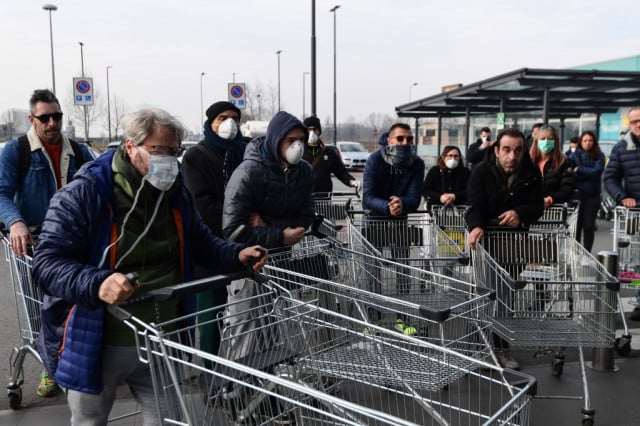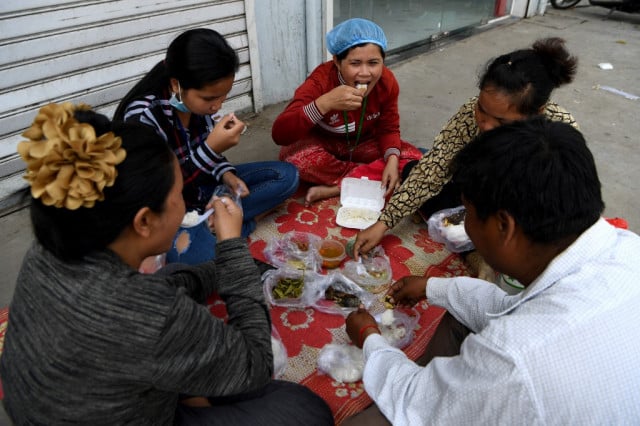China at the Forefront of US-Indonesia Meeting

- By Voice of America
- November 2, 2021 3:25 PM
EDINBURGH, SCOTLAND--U.S. President Joe Biden met his Indonesian counterpart, Joko Widodo, on the sidelines of the COP26 summit in Glasgow, Scotland, Monday, continuing their discussions from the U.S.-ASEAN and East Asia summits in October.
"Indonesia is a vital strategic partner to the United States, and your leadership in the Indo-Pacific is essential," Biden said to Widodo, also known by his nickname, Jokowi.
Jokowi thanked Biden for the 13.4 million doses of COVID-19 vaccine, among the largest donations that Washington has provided via the COVAX vaccine-sharing mechanism.
The meeting is part of Biden's diplomatic charm offensive to win the favor of the largest country in Southeast Asia, a region where Chinese economic, diplomatic and military clout has been steadily rising.
Climate change, pandemic response, freedom of the seas, the Myanmar coup and strengthening the "strategic partnership" were among the subjects the pair discussed, according to a readout provided by the White House. This is the first in-person meeting between the two since Biden took office.
During the nearly hourlong meeting, Biden reiterated the United States' commitment to ASEAN (Association of Southeast Asian Nations) centrality and support for the ASEAN outlook on the Indo-Pacific — terminology that essentially means ensuring that regional processes and engagements are determined and led by the 10-country bloc.
Since its inception, Indonesia has proudly held to the principle of nonalignment — enshrined in its "independent and active" foreign policy doctrine — by adopting a balanced approach to avoid angering either Washington or Beijing.
But now Washington wants Indonesia to take a firmer stance against Chinese transgressions, most importantly in the South China Sea, where Jakarta has recently adopted a softer, less confrontational stance in its own dispute with Beijing around the Natuna Islands, said Lucas Myers, the program coordinator and associate for Southeast Asia at the Wilson Center's Asia Program.
Tough sell
That may be a tough sell. Beijing has sought to win Jokowi over with massive investments in infrastructure and vaccine diplomacy, while Washington's efforts under the previous Obama and Trump administrations were desultory at best, said Aaron Connelly, a research fellow at the International Institute for Strategic Studies.
"We want to be close to the U.S., but sometimes it's difficult," said Luhut Pandjaitan, Indonesia's coordinating maritime affairs and investment minister, to VOA's Indonesian Service in October following his meeting with U.S. national security adviser Jake Sullivan. Pandjaitan said that he had told Sullivan that Jakarta has been very welcoming to Chinese investors "because we need to survive."
Beijing is Indonesia's biggest investor. According to Indonesian state media, in 2020 Chinese investment in the country reached $4.8 billion and total trade topped $78.48 billion.
With the Jokowi government prioritizing economic growth, Washington needs to enhance trade and investment with Indonesia to compete with China. "To the U.S., I said, 'Why don't you come too?'" Pandjaitan said.
The U.S.-ASEAN Business Council trade group said the Biden-Jokowi meeting was "another positive step" in expanding economic relations.
"The reform efforts by President Jokowi are seemingly improving Indonesia's ability to compete for attracting higher-value foreign direct investments in areas such as mining and electric vehicles," said Marc Mealy, the council's senior vice president of policy.
"Looking ahead, U.S.-Indonesia economic priorities of interest to American companies will include health care, renewable energy resources, and the use of digital technologies and green finance to support economic recovery," Mealy added.
It's not the first time a U.S. administration has tried to pry Jakarta from Beijing's sphere of influence. Mike Pompeo, secretary of state during the Trump administration, sought to turn Indonesia against China by highlighting Beijing's persecution of Uyghur Muslims. The effort backfired.
"Many influential Indonesians viewed Pompeo cynically and worried that heightened tensions between Beijing and Jakarta would lead to racial tensions in Indonesia," Connelly said. "So, despite Indonesia's status as the world's largest Muslim-majority country, it has been relatively quiet about the situation in Xinjiang."
In November 2020, the Trump administration dangled the promise of a $2 billion investment into Indonesia's planned sovereign wealth fund. The plan fell through because the price — recognition of Israel under the Trump administration's Abraham Accords — was too high for Jakarta.
Unified on Myanmar
Biden and Jokowi called on Myanmar's military to halt all violence and release political prisoners. The White House said the two leaders agreed Monday that the military must "provide a swift return to democracy."
Myanmar has been in turmoil since a military coup seized power in February.
"The crisis in Myanmar is arguably the most pressing issue for ASEAN, and Indonesia stands out as consistently pushing for a stronger response against the military takeover," Myers said.
In October, Indonesia and other ASEAN ministers excluded Senior General Min Aung Hlaing from the ASEAN Summit — the bloc's biggest rebuke of Myanmar since February 1, when the Myanmar military toppled a civilian government under the de facto leadership of Aung San Suu Kyi.
Former U.S. ambassador and New Mexico Governor Bill Richardson is heading to Myanmar on a private humanitarian mission that will focus on pandemic support, his spokesperson said Sunday.G-20: Bali 2022
Jakarta is set to take over the G-20 presidency from Italy beginning in December. Jokowi has promised "inclusive, people-centered, environmentally friendly and sustainable growth" as a central principle in its G-20 leadership, adopting the theme "Recover Together, Recover Stronger."
A key element of that theme is funding developing nations' climate action plans. At the G-20 summit in Rome over the weekend and at COP26, Indonesia, a large greenhouse gas emitter, pushed wealthy nations to fulfill their climate-financing commitment to provide $100 billion a year to support developing countries' efforts to reduce emissions and mitigate the effects of climate change.
The White House said that after a four-year absence of U.S. leadership under the previous administration, Biden is committing to meet international climate-financing goals by 2023.
In September, Biden pledged to work with Congress to double U.S. climate financing to $11.4 billion per year by 2024. In his COP26 remarks on Monday, he said he would launch an initiative to provide $3 billion per year, as part of a broader climate-financing package. Congress would first need to approve the plan.















